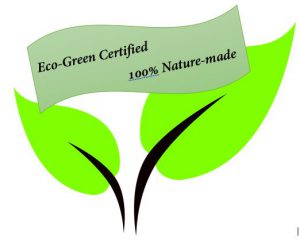By Julia Soondar, Food Systems Intern, UF IFAS Extension – Osceola County
When companies are using green marketing, they may be required to follow guidelines by various organizations to achieve eco-labeling for their products. These guidelines vary depending on the product and label, but typically include sourcing, developing, and disposing sustainably. “Greenwashing” is a form of green marketing where a company uses deceptive marketing to appear more environmentally friendly than they actually are by being vague or just dishonest. Greenwashing undermines consumer trust of eco-labels and green marketing. Not only is this deceptive to the consumer, but it is also negatively impacting companies that are true to their eco-labeling and in turn, hurting the environment. Foods, beauty products, cleaning products, appliances, and even recreational activities have been greenwashed.
Unregulated Food Labels
There are many claims producers make that could be good, but without regulated standards or verification processes, may be false.
- ‘Natural’ is an unregulated term except on poultry.
- ‘Free Range’ is not regulated on beef and eggs.
- ‘Pasture raised’ has no standard and is not verified.
- ‘Pesticide free’ is allowed by the FDA but has no real definition, standard, or regulation.
- Humanely raised is not regulated unless it’s “Certified Humane”.
- ‘Antibiotic free’ is allowed by the FDA but has no real definition, standard, or regulation.
- ‘Cage-free’ on eggs is not meaningful unless it is also rated by USDA standards. On poultry, chickens are not typically caged.
- ‘No added hormones’ does not need verification and can be added on pork even though pigs are given hormones.
- ‘Non-GMO’ claims on meat have a standard but no verification and all other products have no standards or verification.
- ‘Locally grown’ is an unregulated term that can be self-defined.
- USDA Grading on meat, produce, and dairy rates final products on imperfections and has nothing to do with production quality.
- ‘Grass-fed’ implies that cows are only being pasture fed and this can involve chemicals. For meat, there is a formal definition set by the USDA but for dairy, the FDA has not set one. Neither term is required to be verified.
Savvy Shopping
 As a consumer, there are many ways to be a smart shopper.
As a consumer, there are many ways to be a smart shopper.
- Do not be swayed by the green writing, unfamiliar words, or pictures of plants.
- Read labels and understand what the terms mean, who backs it, and its validity. Ask yourself questions about the product.
- Become familiar with the various food certifications and their meanings. Check out websites like GreenerChoices and GreenerAmerica. However, keep in mind, just because there is not a certified logo, that does not mean that it is not a sustainable product. Certifications can be expensive and a long, difficult process, making it impractical for some small-scale producers.
- Get to know other common food labels like kosher, halal, vegan, vegetarian, gluten-free, whole grain, fat-free, sugar-free, etc.
- Read and fact check companies because if their claims are true, they are likely to be telling the story of how or why they are producing that way.
- Be aware of other common deceiving products such as “eco-friendly plastic” (water bottles, silverware, cups), “clean coal”, electric cars, and farmers markets where vendors falsely allow people to believe they are the growers.
- Shopping locally and small scale provides the opportunity to directly speak to producers, ask questions, and bypass the meaning of labels.
For more information on local foods and sustainable lifestyles, check out programming and resources available through the UF IFAS Extension – Osceola County .
 1
1
